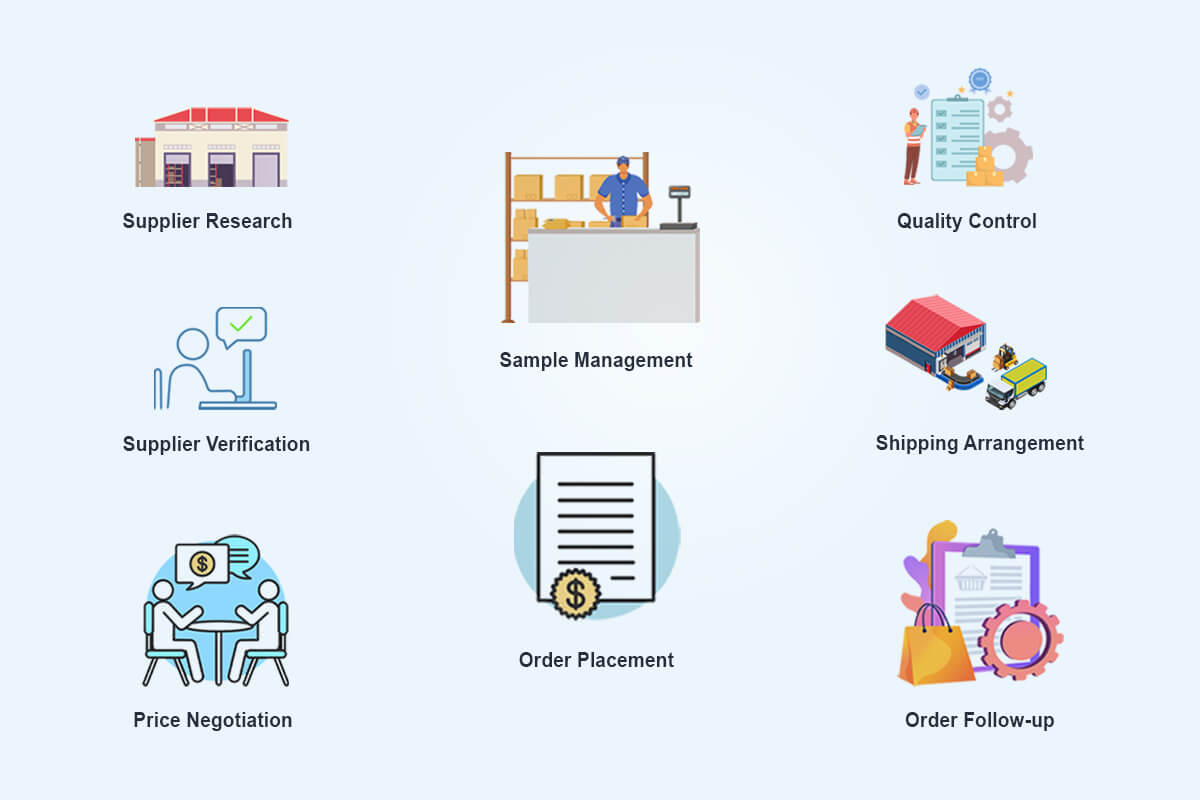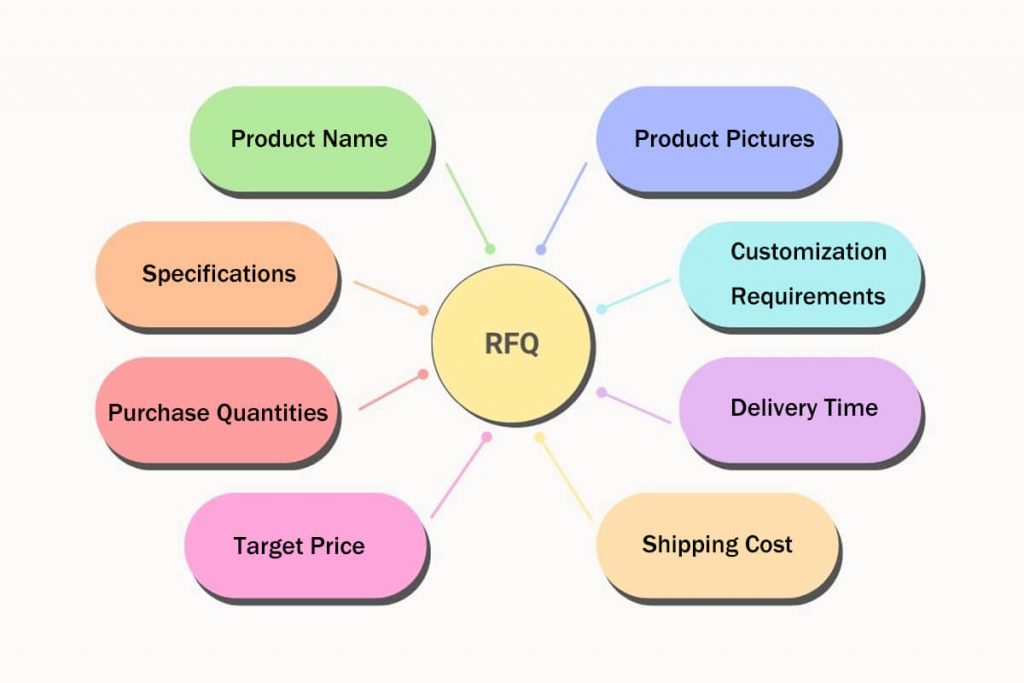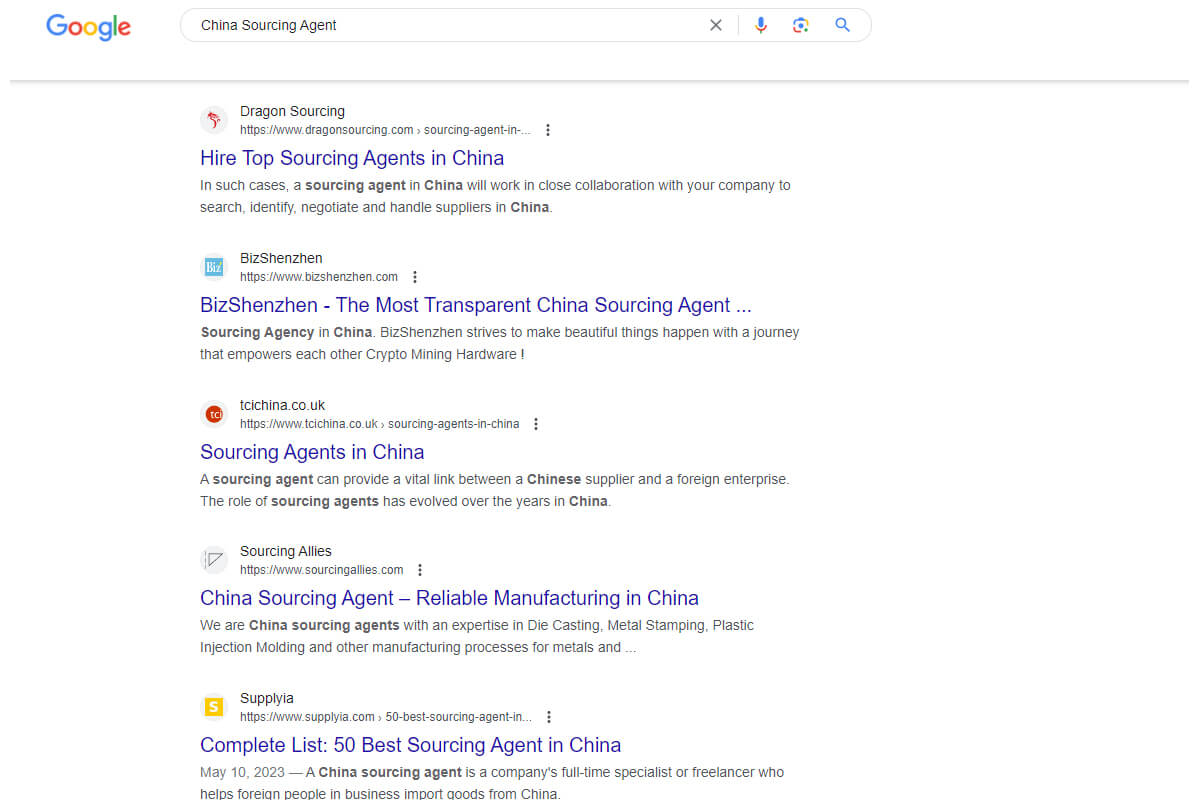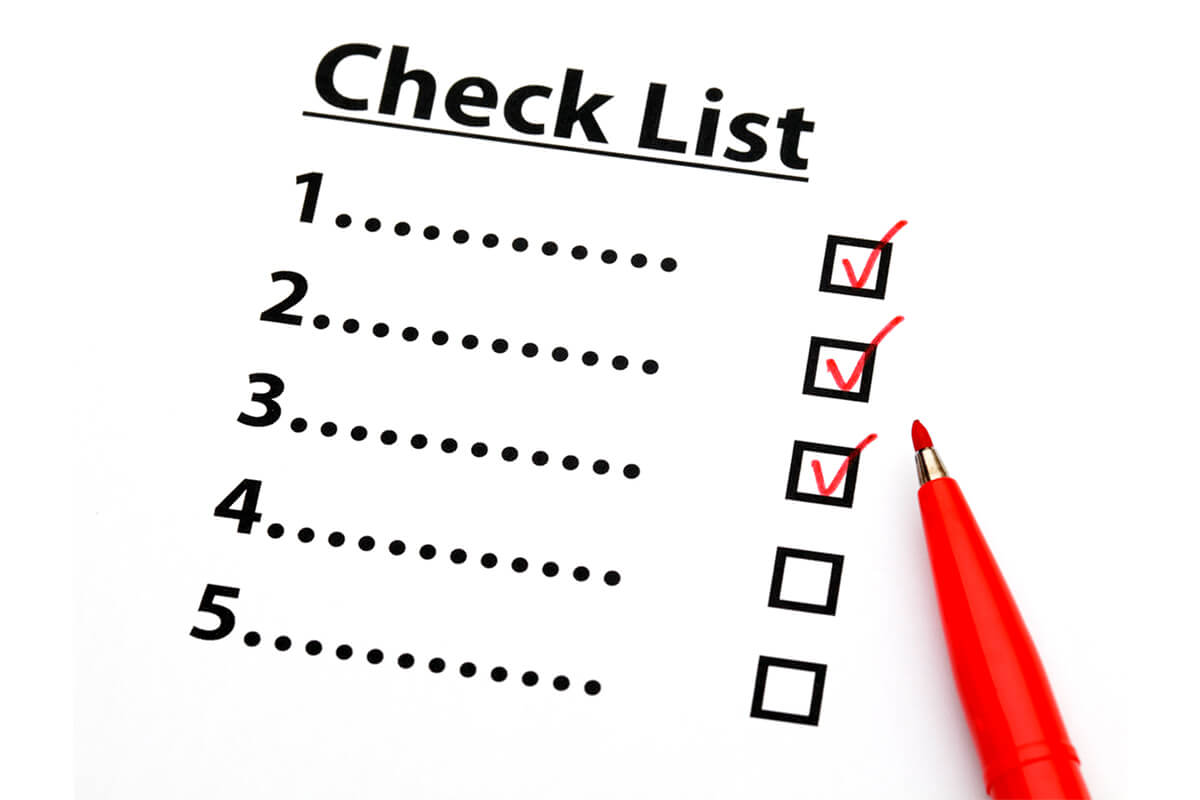
China has been a significant powerhouse in fulfilling global sourcing requirements for decades. Businesses turn to China for sourcing products at highly competitive costs to earn lucrative profit margins.
But how to get top-quality products at the best prices from the right manufacturers in China? That’s where a China sourcing agent comes in. These agents act as intermediaries between international buyers and Chinese suppliers, including direct manufacturers and wholesalers.
Working smoothly with a professional sourcing agent in China helps streamline your entire procurement process from production to delivery. In this guide, we will explore the role of a China sourcing agent, the importance of working with one, and provide an overview of how to effectively collaborate with them.
Let’s start.
What Is a China Sourcing Agent?

A China sourcing agent is a professional or a company that assists international businesses find and buy from reliable suppliers and manufacturers in China.
With their deep knowledge of the local market and extensive networks, sourcing agents help bridge the gap between international buyers and Chinese suppliers, facilitating effective communication, fruitful negotiation, and timely delivery of the required goods.
China remains a major global manufacturing hub, offering a wide range of products at competitive prices.
However, the language barrier, cultural differences, and the vast number of suppliers make it challenging for foreign businesses to navigate the Chinese market alone.
Sourcing agents provide invaluable expertise and local insights to help buyers find trustworthy suppliers, negotiate favorable terms, ensure product quality, and oversee the entire sourcing process.
By collaborating with a good China sourcing agent, businesses can save time and effort, minimize overall risks, and increase their profit margins to manifolds.
How Does Sourcing Work?
The product sourcing process typically involves several steps, which can vary depending on the specific requirements of the buyer. Here is a general overview of how sourcing works:
Requirement Analysis
The buyers communicate their product requirements, including specifications, quantity, quality standards, and any other relevant details, to the sourcing agent.
Supplier Identification
The sourcing agent conducts research and identifies potential suppliers based on the buyer’s requirements. They consider factors like product quality, price, and manufacturing capacity while selecting the right supplier.
Supplier Verification
The agent performs due diligence on the selected suppliers to ensure their legitimacy, reliability, and compliance with relevant regulations. This may involve checking business licenses and certificates, visiting factory facilities, and reviewing product samples.
Price Negotiation
Sourcing agents negotiate with the suppliers on behalf of the buyer to secure favorable pricing and terms. They aim to strike a balance between cost-effectiveness and maintaining product quality.
Sample Evaluation
Once initial terms are agreed upon, the agent arranges for the production of product samples, which are then evaluated by the buyer for quality, functionality, and adherence to specifications.
Order Placement
If the samples meet the buyer’s requirements, they proceed with placing an order. The sourcing agent helps draft and finalize contracts, specifying payment terms, delivery, and other relevant details.
Quality Control
Throughout the production process, the sourcing agent monitors quality control procedures to ensure the products meet the buyer’s standards. They may conduct inspections and testing at various stages, such as during production, before shipment, or after delivery.

Logistics and Shipping
Sourcing agents assist with coordinating logistics, including arranging transportation, customs clearance, and shipping documentation.
They ensure the smooth movement of goods from the supplier’s location to the buyer’s destination.
Delivery and After-Sales Support
The agent tracks the shipment and ensures timely delivery. They also provide any necessary after-sales support, including shipment tracking information, handling product warranties, and addressing any issues.
Defining Your Sourcing Needs
Before engaging with a China sourcing agent, it’s crucial to define your sourcing needs clearly. Let’s explore some of the most important aspects to define your sourcing needs:
Product Identification
Determine the specific types of products you wish to import from China. Ideally, you must have the product’s pictures and specific details about its functions to facilitate a sourcing agent.
A buyer should share the requirements via an RFQ (Request for Quotation.) As sourcing agents usually get a large number of inquiries, sharing the requirements via a properly formatted RFQ will increase your chances to be considered seriously.
The RFQ should be on your company letterhead, with all the details, including product name, specifications, required quantities, and desired costs. The costs should also include shipping charges. You should also mention the validity period of the quotation in the RFQ template.

Quality and Quantity Standards
Assess the quantity of products you need to source to meet your market demands. Consider your expected sales volume and growth projections.
Additionally, define your quality standards to ensure that the sourced products meet your expectations and comply with any relevant regulations or certifications., like ISO certifications and CE-certified products for the EU.
Set Your Budget
Determine your budget for sourcing products from China. Consider not only the product costs but also additional expenses such as shipping, customs duties, quality control inspections, and any other associated fees.
Ideally, you should negotiate the whole sourcing deal with the agent according to your budget.
Specify Shipping and Storage Terms
Decide on the shipping method, whether by air, sea, or land, and consider factors such as transit time and cost. Also, determine if you want the sourcing agent to store your products before shipment.
You should also decide whether you need the products shipped directly to your location or a third-party warehouse, like Amazon FBA.
Establish Lead Time Expectations
Determine the desired lead time for the sourcing process, including production and delivery.
Remember that lead times can vary depending on factors such as product complexity, order quantity, and supplier capacity. So, it is recommended to agree on a maximum deadline with the agent.
Clarify Specific Requirements or Preferences
Communicate any specific requirements or preferences to the sourcing agent. This may include product specifications, packaging preferences, labeling requirements, etc. If necessary, consider requesting samples to evaluate the product’s quality, design, and functionality before placing a bulk order.
General Wholesale vs. Product Customization
Decide whether you want to source products from manufacturers who offer ready-made, generic products in wholesale quantities or if you require customization to meet your unique specifications.
Customization may involve modifications to product design, materials, packaging, or branding.
How to Find a China Sourcing Agent?
With a huge influx of sourcing requirements from China, many sourcing agents have popped up to offer their services. International buyers may find it hard to select the best sourcing agent for their businesses.
While searching for a China sourcing agent, you may use the following effective methods to find a reliable sourcing agent:
Online Research

Professional sourcing agents ensure their presence on mainstream online platforms. You can find them on search engines like Google, Bing, and Yahoo. They ensure that their websites are optimized against the frequently searched keywords, so they appear on top results.
You can also find them on social media platforms, especially on Facebook, YouTube, and LinkedIn.
Online Directories
Utilize online directories that specialize in connecting buyers with sourcing agents in China. These directories may provide comprehensive profiles of agents, including their expertise, services offered, and contact information.
Examples of such directories include Alibaba, Global Sources, and Made-in-China.
Trade Shows and Exhibitions
Attend trade shows and exhibitions related to your industry, especially those held in China or with a significant presence of Chinese suppliers.
These events provide an opportunity to meet sourcing agents in person, learn about their services, and establish direct connections.
Consider attending popular trade shows in China, including Canton Fair, Yiwu Trade Fair, and the Shanghai Import and Export Commodity Fair.
Referrals and Recommendations
Seek recommendations from business partners, colleagues, or other professionals who have experience working with China sourcing agents.
Referrals can provide valuable insights into an agent’s reputation, reliability, and professionalism.
Communicating with the China Sourcing Agent

The communication barrier with Chinese suppliers is one of the primary reasons why international buyers hire sourcing agents.
Effective communication with your China sourcing agent is vital for a successful collaboration. When interacting with the agent, follow these key steps:
Initial Communication
Contact the agent and introduce your project with as many details as possible. Mention your business name, industry, and the products you are interested in sourcing from China.
Include specifications such as product features, quantity, quality standards, packaging requirements, target price range, and other relevant details.
Set Clear Expectations
Clearly communicate your expectations regarding delivery timeframes, payment terms, and specific certifications or compliance requirements.
Agree on Shipping Incoterms
It is vital to discuss and agree on shipping Incoterms with the China sourcing agent. Choosing the wrong Incoterm may increase your costs and effort to grab your products.
So, it is advised to choose your Shipping Incoterms wisely.
For example, the safest shipping Incoterms for international buyers with little to no experience importing products are DAP (Delivered At Place) and DDP (Delivered Duty Paid.)
Ask Specific Questions
Ask any specific questions about the sourcing process, the agent’s expertise, or the suppliers they work with.
This could include inquiries about the agent’s experience in your industry, their familiarity with relevant regulations, or their ability to handle customizations.
Active Listening and Open Communication
Listen attentively to the sourcing agent’s responses and ask for clarification.
Maintain open and transparent communication throughout the sourcing process, providing timely feedback and addressing any concerns or changes in requirements promptly.
Language and Cultural Considerations
Keep in mind that language and cultural differences may exist between you and the sourcing agent.
If you find it hard to understand the agent’s English, inform him straight away so he may arrange representatives with better English skills.
Use Official Communication Channels and Documentation
Depending on the agent’s preferred mode of communication, utilize official tools such as email, phone calls, video conferences, or instant messaging platforms to maintain regular contact.
You should preferably document every point you have discussed for a better and more transparent liaison.
How to Assess the Capabilities of a China Sourcing Agent?
You may be in contact with multiple agents for your sourcing requirements, but how will you be sure which agent is best for you?
The following factors will help you decide if the sourcing agent has the required capabilities to work with you:
Agent’s Understanding of Your Needs
A capable sourcing agent should demonstrate a clear understanding of your specific requirements, including product specifications, quality standards, target price range, and any other relevant details.
Consider it a good sign if an agent asks relevant questions to clarify any ambiguities.
Sourcing Expertise
Assess the agent’s ability to source the required products by evaluating their knowledge of the Chinese market, their network of suppliers, and their track record of successful sourcing projects.
Inquire about their sourcing process, their approach to supplier selection, and how they ensure the reliability and quality of the sourced products.
Reputation, Experience, and Client Reviews
Research the agent’s reputation and experience in the industry. Look for client reviews, testimonials, or case studies demonstrating their ability to deliver results and meet client expectations.
A reputable agent should be transparent about their past projects and willing to provide references upon request.
Expertise in Your Industry or Product Category
Assess whether the sourcing agent has specific expertise or experience in your industry or product category.
Their familiarity with industry-specific requirements, regulations, and quality standards can significantly enhance the sourcing process.
Inquire about their experience working with similar products or clients and how they stay updated on industry trends and changes.
Problem-solving and Communication Skills
Evaluate the agent’s problem-solving abilities and proactive approach to addressing challenges that may arise during the sourcing process.
Effective and frequent communication is crucial for a successful collaboration, so assess their communication skills, responsiveness, and ability to provide timely updates and feedback.
Checklist to Select a Right China Sourcing Agent

You should consider the following checklist while working with a China sourcing agent:
- Check for the agent’s location in China, as proximity to manufacturing hubs can provide logistical advantages and better access to suppliers.
- Look for agents with a proven track record and extensive experience in sourcing from China, preferably in your niche.
- Assess the capabilities of the agent’s team, including their expertise in different product categories and their ability to handle complex sourcing requirements.
- Ensure the agent is properly registered and has the necessary documentation, such as business licenses and permits, to conduct sourcing operations legally.
- Evaluate the agent’s ability to communicate clearly and promptly in your preferred language.
- Experience with SOPs, like FBA preparation services.
- Assess the agent’s relationships and collaborations with reliable shipping companies to facilitate smooth transportation and logistics arrangements.
- Worldwide network of deliveries, including global warehouse locations.
- Evaluate the agent’s customer service capabilities, including responsiveness, problem-solving abilities, and willingness to address your concerns or inquiries promptly.
- Ensure the agent is familiar with shipping Incoterms (international commercial terms) and has experience in dealing with customs procedures and obligations to prevent any shipping or customs-related issues.
- Determine if the agent offers additional services beyond sourcing, such as quality control inspections, factory audits, product customization, and storage.
Finalizing Terms and Conditions

When you are all set with scrutinizing a China sourcing agent, you must consider the finalizing step of negotiation terms and agreements.
Here are some key areas to focus on during the negotiation process:
Price, Payment Terms, and Order Quantity
Engage in detailed discussions with the sourcing agent about pricing structures, including unit costs, discounts for larger orders, and any additional charges, like small customizations.
Clarify the accepted payment methods. Most sourcing agents accept payments via mainstream payment channels including Bank Transfer (T/T), Western Union, PayPal, WeChat, and AliPay.
You should also confirm the accepted payment terms, such as the percentage of payment required upfront and the balance payment upon shipment or delivery.
Additionally, discuss minimum order quantities and the possibility of scaling up or down based on demand.
Quality Control Measures
After communicating your quality expectations with the agent, discuss the quality control measures he will implement for a smooth sourcing process.
This may include inspections, product testing, and adherence to specific industry standards or certifications.
Ensure the agent understands the importance of maintaining consistent quality throughout the sourcing process.
Agent’s Responsibilities and Scope of Work
Define the agent’s responsibilities and the scope of their work.
This includes specifying the stages of the sourcing process they will handle, such as supplier identification, price negotiation, sample evaluation, order placement, quality control inspections, and logistics coordination.
Ensure there is clarity regarding the agent’s role and the level of involvement you expect from them.
Logistics and Delivery Expectations
Work closely with the sourcing agent to coordinate shipping and logistics details. Provide them with the necessary information, such as the desired shipping method (air, sea, land), preferred carriers, lead time, shipping address, etc.
Negotiating these terms and agreements is crucial to establish a solid foundation for your collaboration with the China sourcing agent.
It helps ensure that both parties have a clear understanding of their roles, responsibilities, and expectations, reducing the risk of misunderstandings and disputes later on.
Post-Sales Relationship Management
After completing the sourcing process, it’s important to focus on post-sales relationship management with your China sourcing agent.
Here are key aspects to consider:
Maintaining Regular Communication
Continue to communicate regularly with your sourcing agent even after completing the initial sourcing project.
Keep them updated on your business needs, market trends, and any changes in your sourcing requirements.
Regular communication helps foster a strong relationship and keeps both parties informed.
Addressing Issues or Concerns Promptly
If any issues or concerns arise with the sourced products, address them promptly with the sourcing agent.
Clearly communicate the problem and work together to find a solution.
A reliable agent will take responsibility for addressing issues and working toward a satisfactory resolution.
Building a Long-Term Relationship
Don’t let your valuable research for a reliable China sourcing agent go to waste. Look beyond the current sourcing project and consider the potential for a long-term relationship with the sourcing agent.
If you are satisfied with their services and performance, express your interest in future collaborations.
Building a strong and trust-based relationship can lead to smoother sourcing experiences and better outcomes for future projects.
Monitoring Performance During Unusual Situations
Keep monitoring your agent’s performance during peak seasons, such as the fourth quarter (Q4), when demand and production volumes are usually higher due to shopping festivals and the holiday season in the West.
Evaluate their ability to handle the increased workload, ensure timely deliveries, and maintain quality control standards during busy periods.
This is particularly important if your business experiences seasonal fluctuations in demand.
Do’s and Don’ts of Working with a China Sourcing Agent

Let’s re-emphasize the crucial factors for a smooth and desirable sourcing experience with a China sourcing agent by skimming and scanning the following do’s and don’ts:
Do’s of Working With a China Sourcing Agent
- Research and select a reputable China sourcing agent.
- Compare offers from multiple agents in China.
- Define product quality standards.
- Clearly communicate your requirements and register expectations via official channels, like email.
- Implement proper contracts and agreements.
- Visit suppliers and conduct inspections when necessary (online or offline.)
Don’ts of Working With a China Sourcing Agent
- Don’t rely solely on price as the determining factor.
- Don’t overlook the importance of intellectual property protection.
- Don’t ignore proper certifications.
- Don’t take things for granted.
- Don’t skip regular monitoring and inspections.
FAQs about Working with a China Sourcing Agent
Read the following answers to the questions that most buyers frequently ask about working with a China sourcing agent.
These answers will help clarify your existing or potential queries:
What Are the Most Common Ways to Communicate with a China Sourcing Agent?
You can communicate with a China sourcing agent via traditional methods, including phone calls, and WhatsApp messages, but to sound more professional, we recommend using the following methods:
Try to use your official email ID to communicate with a sourcing agent. You should also ask agents to reply to your emails from their company’s email ID.
Video Calls
A video call is an efficient way to directly communicate with a China sourcing agent. When you talk to the agent via video call, you can better judge if the agent has understood your requirements.
We advise you to write and share minutes of the meeting via email after your discussions to acknowledge mutual agreements. You may use famous video conferencing tools, like Skype and Zoom. You can also use WeChat, as it is widely used in China.
Project Management Tools
You should also consider using professional project management tools like Slack, Trello, and Asana. Using such tools will elevate your professional standing in the eyes of a China sourcing agent.
How Much Does a China Sourcing Agent Charge?
The fees charged by Chinese sourcing agents can vary depending on factors such as the complexity of the sourcing project, order quantities, and the range of services provided.
Typically, sourcing agents charge a percentage of the total order value or a fixed fee for a smaller order value. The usual charges are around $100 for the order value below $1,000.
The percentage starts from 10% for the order value up to $2,000 and goes down to 5% for the order value of around $30,000.
It’s important to discuss and agree upon the fee structure with the agent before starting the sourcing process.
What Are the Alternatives to Working With a China Sourcing Agent?
Alternatives to working with a China sourcing agent include sourcing directly from manufacturers, using online platforms and marketplaces to connect with suppliers, or hiring a local translator to facilitate communication.
Each alternative has its own advantages but may also have limitations, such as wrong communication, frequent deviations from commitments, and huge time investment.
Should You Rely on a Single China Sourcing Agent?
Relying on a single China sourcing agent can have its advantages, such as building a long-term relationship, streamlining communication, and leveraging their industry expertise.
You can rely on a single China sourcing agent if you are completely satisfied with his services, as finding a trustable sourcing agent is also a daunting task.
However, it’s also recommended to diversify your options and work with multiple agents or explore alternative sourcing methods.
This approach can provide more flexibility, access to a wider range of suppliers, and the ability to compare prices and services.
Do Some China Sourcing Agents Take Kickbacks from Suppliers?
You cannot rule out the possibility of China sourcing agents taking kickbacks from the suppliers to earn extra bucks, especially if you hire an untrustworthy agent.
However, you can minimize this risk by hiring reputable and trustworthy agents who cannot afford to jeopardize their reputation in exchange for a trivial amount.
You can do so by following the tips we shared earlier in this article under the sections of checklist to select a right China sourcing agent and how to assess the capabilities of a China sourcing agent.
Summary
Smart businesses that rely on sourcing products from China always prefer working with a China sourcing agent to save time, effort, and costs, so they can focus on more important tasks of their businesses. However, working with a China sourcing agent is a strategic approach that streamlines the process of importing products from China.
It is always crucial to follow the key steps, tips, and tricks we discussed in this article for a successful collaboration with a sourcing agent in China. By following these steps, businesses can optimize their sourcing process and establish successful relationships with Chinese suppliers while keeping the risks at a minimum.
If you want us to source high-quality products for your business from reliable manufacturers in China at the most affordable prices, ask us for a free quote. Our relevant sourcing expert from your niche will instantly guide you through every step. Happy sourcing from China!

